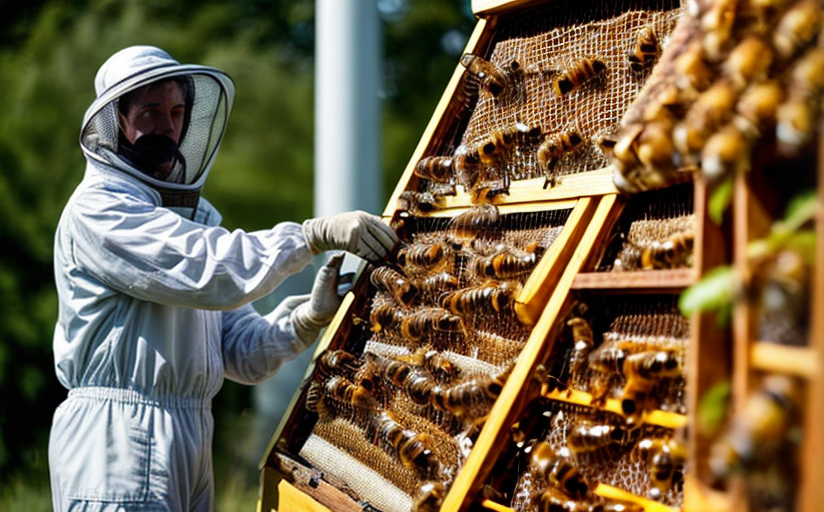The Impact of Technological Advancements on Beekeeping
When you think about beekeeping, is the first image that comes to mind a person clad in a white suit with a netted face shield, handling honey-laden frames from wooden hives? This traditional image of beekeeping, though still largely accurate, now shares space with a much more tech-infused reality. As with many industries, contemporary beekeeping has embraced the power of technology, initiating a period of revolutionary changes in this age-old practice.
Benefits of Technology in Beekeeping
The benefits of incorporating technology in beekeeping are substantial. Modern tech tools such as hive monitoring systems allow beekeepers to maintain optimal hive conditions, leading to healthier bees and better honey production. These monitoring systems record crucial data such as humidity, temperature, and hive weight, enabling beekeepers to track health patterns and take immediate action when anomalies are detected.
Challenges Associated with Technology in Beekeeping
However, the advent of technology in beekeeping does not come without challenges. Some beekeepers may find the adoption of new digital tools daunting, particularly in areas where resources or training may be limited. Moreover, relying on technological devices can lead to a disconnect from the hands-on nature of traditional beekeeping practices.
Outcomes and Innovations
Despite these challenges, the outcomes and recent tech innovations in the beekeeping industry are undeniably promising. Technologies like infrared cameras enable beekeepers to spot diseases early and without disturbing the hive. Meanwhile, GPS tracking allows beekeepers to monitor the honeybee's flight patterns, aiding studies into bee behavior and assisting in combating colony collapse disorder.
Environmental and Ethical Concerns
Yet, it is crucial to consider potential ethical and environmental implications of such technological integrations. Energy consumption, e-waste, and data privacy issues are among the valid concerns that need to be addressed. Environmental impact assessments and ethically sourced materials can help mitigate some of these worries.
Future Implications
As we gaze into the future, the role of technology in advancing beekeeping appears lucrative yet measured. Harnessing the power of AI and machine learning can potentially transform the understanding of complex hive behaviors, aiding in better bee conservation efforts. Furthermore, the use of automated drones in pollination hints at a futuristic solution to the alarming decline in bee populations.
In conclusion, the introduction of technology into beekeeping has certainly shaped the industry in new and exciting ways, offering numerous benefits whilst posing unique challenges. As we continue to blend age-old practices with innovative technology, it is important to balance progress with sustainable practices that ensure the preservation of these vital creatures.
















Comments
Leave a Comment